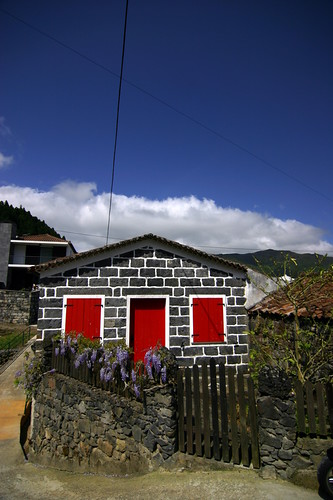The religious spirit of the Azorean is made keen by natural catastrophes and the isolation to which they were subjected for centuries, during which visits by ships were few and far between and inter-island relations were very weak, is expressed in forms that testify to the past and to a way of life that still persists.
Of Medieval origin (13th c.) they are one of the most traditional expressions of devotion. They are held on Sundays from April to June. Presenting different characteristics from island to island and from village to village, their common features are the coronation of the "emperor", the feast day on which the offerings of bread, meat and wine - called "pensions" - are distributed among the needy and the "brothers" of the "Empire" and the "jesters" who, with their musical instruments and songs recall age-old customs.
The most colourful festivals of the Holy Ghost take place at Rabo de Peixe, with ox-carts decorated with fanciful ornaments made of coloured paper, and at Ribeira Grande, where girls march in a procession carrying trays on their head with the "pensions" of the "brothers" of the Holy Ghost.
Of Medieval origin (13th c.) they are one of the most traditional expressions of devotion. They are held on Sundays from April to June. Presenting different characteristics from island to island and from village to village, their common features are the coronation of the "emperor", the feast day on which the offerings of bread, meat and wine - called "pensions" - are distributed among the needy and the "brothers" of the "Empire" and the "jesters" who, with their musical instruments and songs recall age-old customs.
The most colourful festivals of the Holy Ghost take place at Rabo de Peixe, with ox-carts decorated with fanciful ornaments made of coloured paper, and at Ribeira Grande, where girls march in a procession carrying trays on their head with the "pensions" of the "brothers" of the Holy Ghost.



No comments:
Post a Comment